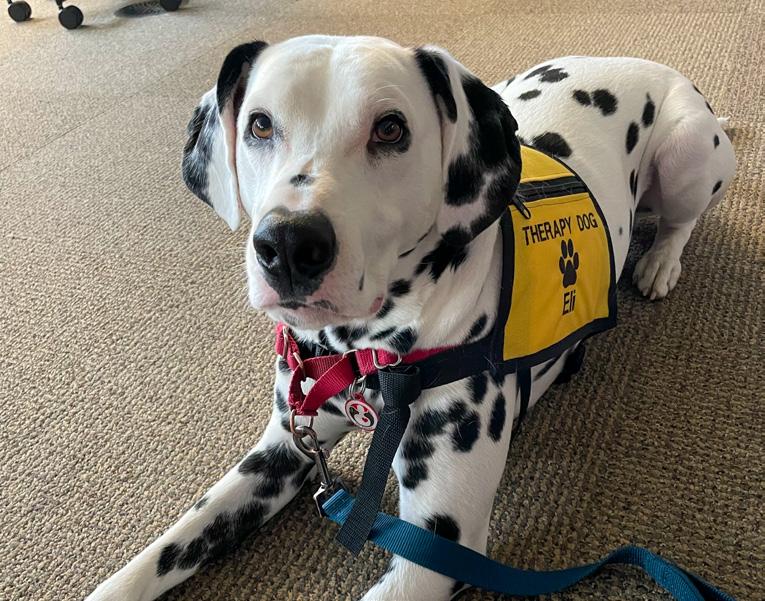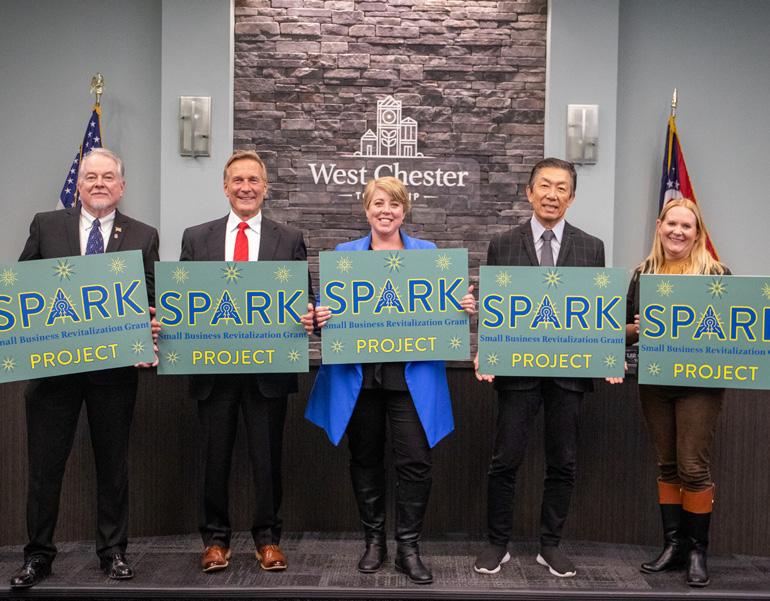
4 minute read
PANDEMIC RELIEF
Federal, State, and County Funding Sources Eased Taxpayer Burden and Enriched Services
Since 2020 West Chester has received more than $16.57 million in pandemic relief funds through various levels of government and specified for various purposes tied to recovery from the pandemic. Grant funding can never be counted on as an ongoing revenue source for operations, but West Chester has endeavored to use the monies in a manner to provide relief to taxpayers while meeting the rules applied to each funding source.
All CARES Act and ARPA funds distributed directly to West Chester were used to cover expenses that may have otherwise been the responsibility of taxpayers. Funding that came to West Chester through other entities had further restrictions applied and, in these cases, funding was earmarked for supporting under-served populations, small businesses and wellness first responders.
West Chester invested all of the relief funds that came directly to the Township to the two most expensive aspects of Township operations – infrastructure and public safety.
Nearly $8.6 million of the pandemic relief funding went to public safety –police, fire/EMS and 911 dispatch.
“Using the pandemic relief funding to cover personnel costs, provides relief to West Chester tax payers because it will buy us time before needing to request a public safety levy ,” said West Chester Finance Director Ken Keim. “Using the funding this way addressed the immediate need to provide these critical services in a time of uncertainty with all the shut downs etc., and worry about the economy as a whole, but also indirectly provides tax relief for our citizens in the longer term.”

More than 80% of the annual budgets for police and fire/EMS are attributed to personnel costs.
Additional ARPA funding coming from the State of Ohio in 2022-2024 was targeting retention of first responders, and the Township appropriated about $665,00.00 to first responder wellness initiatives and retention bonuses for the Township’s first responders in police, fire/EMS and 911 dispatch.
Again ARPA has covered funding for purposes, but rules were applied to the allocations limiting its uses. West Chester Township always applied the bulk of the funding to an expense that met the requirements and would otherwise fall to taxpayers –infrastructure. Much of West Chester’ vast network of storm water and road systems were developed within a short period of time and are also aging and deteriorating at the same rate.
More than $6.6 million of ARPA funding was designated to address aging infrastructure with most of the funding going toward repair and replacement of storm water infrastructure. This money purchased a vacuum truck that will help address storm water issues well into the future and repaired and replaced storm pipe and catch basins throughout the Township. In 2023 approximately 2,400 linear feet of storm pipe was replaced; and in 2024, 90 failed catch basins were rebuilt and 1,800 feet of pipe replaced.
This is necessary and needed work that would have been challenging to achieve in two years’ time with typical budgetary limitations. ARPA created the opportunity to advance necessary work without restricting or limiting other important work.

In 2020/2021, Butler County allocated some funding to each community to support small business. West Chester established the SPARK grant program and awarded $287,583 in improvements to 28 SPARK grant recipients.
A $150,000 Butler County allocation of ARPA funding is supporting West Chester Township’s Senior Transportation Service with the purchase of two new vans. The Service is operated by volunteers and helps get seniors to doctor’s appointments, grocery stores and social gatherings so they can remain independent in their homes.
“The pandemic relief funding is not a revenue source that can be counted on forever, but while it was available the Township pursued opportunities to use the money in a way that met the rules and obligations, but also relieved expenses that would otherwise have belonged to taxpayers,” Ken said.









